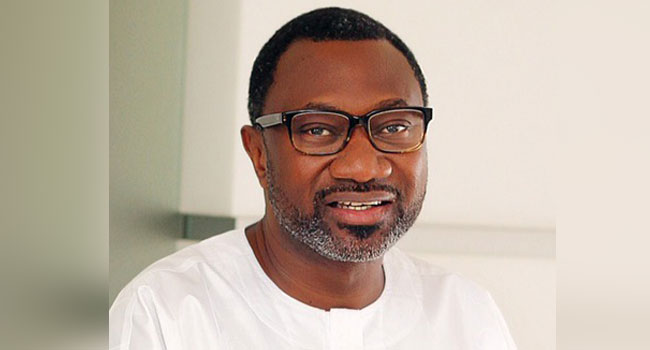BILLIONAIRE businessman Femi Otedola has revealed how the 2008 global financial meltdown wiped out an estimated N220 billion of his fortune, nearly collapsing his oil empire, Zenon Petroleum, and forcing him to surrender prized assets to survive.
The dramatic account is contained in his newly released memoir, ‘Making It Big: Lessons From a Life in Business’, published on August 18, 2025.
Otedola recalled that the crisis began when crude oil prices, which had peaked at $147 per barrel, plummeted to $34 per barrel in just months. Confident of continued boom, he had already placed a $500 million diesel import order.
“The diesel I’d ordered when the price was astronomically higher was already on the high seas. Now, it was worth a fraction of my purchase price. I said to myself, I’m finished,” he wrote.
The situation worsened as the Central Bank of Nigeria devalued the naira. Loans secured at N117/$1 had to be repaid at N165/$1, massively inflating his debt obligations.
“I watched N60 billion evaporate before my eyes, alongside N40 billion in interest payments,” he recounted.
Beyond oil, Otedola held 2.3 billion shares in Zenith Bank about 8% of the bank and another 6% stake in UBA. He admitted regretting a fateful decision not to sell Zenith shares when they surged from N12 to N60, a move that would have netted him N191 billion.
“It remains one of my biggest regrets. If only I had followed my instincts,” he confessed.
By the time the dust settled, Otedola owed N220 billion across eight major banks, including Zenith, Access, GTBank, and UBA.
To escape complete ruin, he struck a deal with the Asset Management Corporation of Nigeria (AMCON), surrendering sprawling estates in Lagos, Abuja, and Port Harcourt, filling stations, truck parks, tank farms, stock holdings, and even his private Bombardier jet.
“It was a lifeboat in the storm. I had to concede that if you sink, you sink, and if you grab a preserver, you’ll stay afloat. I gave it all up to start anew,” he wrote.
By 2012, Otedola had cleared his debts and restarted his ventures. What remained was a 21% equity in AP and three properties in Victoria Island, Ikoyi, and Abuja.
Reflecting on the ordeal, he admitted that ignoring business fundamentals had left him vulnerable:
“I paid dearly for ignoring the fundamentals that strengthen enterprises and render them more professional… I weighed all the issues that led to the collapse of Zenon and addressed them methodically and tactfully, without sentiment.”
The billionaire has since re-emerged as one of Nigeria’s most resilient business figures, holding key interests in energy, finance, and philanthropy.
His memoir promises insights into his biggest mistakes, toughest choices, and strategies for rebirth in business.







